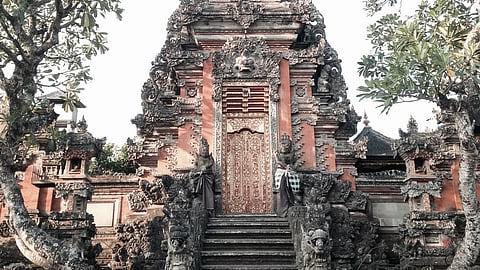India, Indonesia share bonds that span several hundred centuries
The prevalence of Hinduism and Buddhism in Indonesia is a testimony to the influence that the sub-continent had on this southeast Asian country with historians tracing the Hindu influence as far back as the first century A.D.
Though Indonesia is a Muslim-dominated country, Hinduism is one of the recognized religions with about 1.7 percent of the population practising it. Buddhism is followed by just under one percent of the population.
In the 19th century, the Dutch traders brought Indian laborers to Sumatra from Tamil Nadu, Kerala and parts of North India, where they found employment in the coffee and coconut plantations, as cattle drivers and in construction activities.
In the early 20th century, Indian traders and money lenders came into Sumatra.
The Indians in Medan, the capital of North Sumatra, have been living in Indonesia for four generations and form an integral part of Indonesian society. Among Medan's most prominent ethnic vicinities is Kampung Madras, which spans ten acres and has become an annual converging point for Hindus to gather during significant Indian festivals.
Official statistics put the number of Indians living in Indonesia at about 100,000 who are Persons of Indian Origin and 8,500 who are categorised as non-resident Indians. The latter group consists of professionals working as accountants, software engineers and teachers.
There are several not-for-profit organizations in Indonesia that work for the welfare of the Indian community there.
India Club Jakarta was set up in 1981 to foster kinship among the Indians in Indonesia. It conducts many activities centered around Indian art, music, and literature. The Jawaharlal Nehru Indian Cultural Centre established in 1989 under the Indian Council for Cultural Relations, holds all the leading Indian festivals like Diwali and Holi to keep the Indian community well-connected.
India and Indonesia share bonds connected by culture, language, cuisine, and political philosophy

